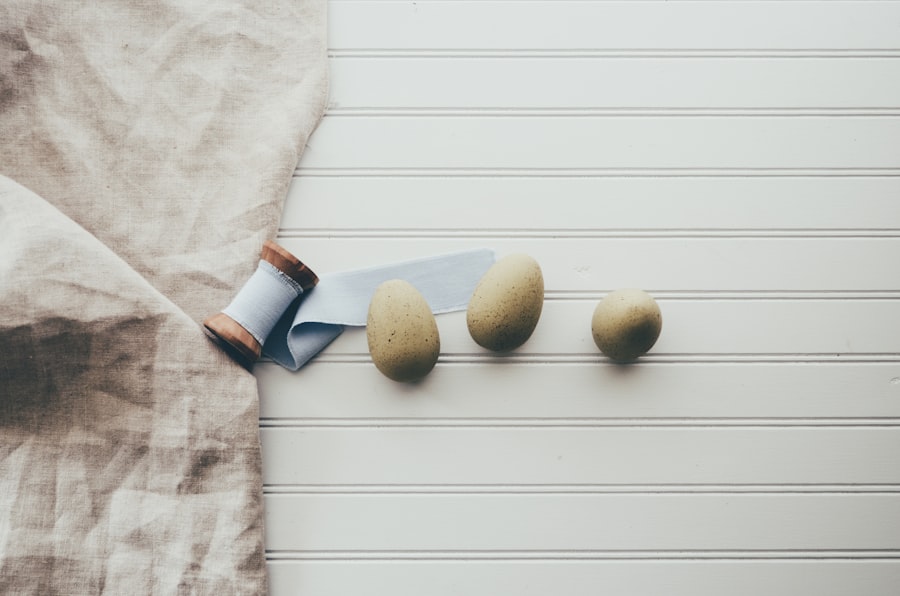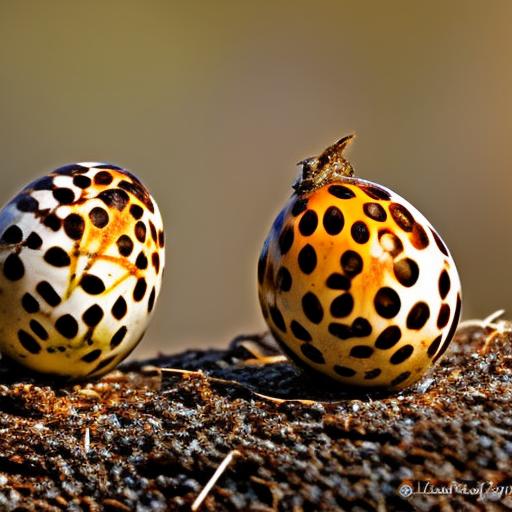Quail eggs, like any other type of eggs, have a limited shelf life. The shelf life of quail eggs refers to the length of time that the eggs can be stored and consumed without spoiling. Quail eggs typically have a shorter shelf life compared to chicken eggs, lasting for about 3 to 4 weeks when properly stored. The shelf life of quail eggs is influenced by various factors such as storage conditions, handling, and age of the eggs. Understanding the shelf life of quail eggs is important to ensure that you consume them while they are still fresh and safe for consumption.
Quail eggs are known for their delicate nature, which makes them more susceptible to spoilage compared to chicken eggs. The shells of quail eggs are thinner and more porous, making them more prone to bacterial contamination and moisture loss. This is why quail eggs have a shorter shelf life compared to chicken eggs. It is important to understand that the shelf life of quail eggs can be affected by factors such as temperature, humidity, and handling. Proper storage and handling of quail eggs are essential in preserving their freshness and extending their shelf life.
Key Takeaways
- Quail eggs have a shelf life of about 3-4 weeks when properly stored in the refrigerator.
- Proper storage of quail eggs involves keeping them in their original carton, pointy side down, in the coldest part of the refrigerator.
- Signs of spoilage in quail eggs include changes in color, texture, and odor, as well as the presence of cracks or leaks.
- Factors affecting the shelf life of quail eggs include temperature, humidity, and handling during collection and packaging.
- To extend the shelf life of quail eggs, it is important to store them properly and consume them before the expiration date.
- It is not recommended to use quail eggs after the expiration date, as they may pose a risk of foodborne illness.
- In conclusion, enjoying quail eggs safely involves understanding their shelf life, proper storage, recognizing signs of spoilage, and taking steps to extend their freshness.
Proper Storage of Quail Eggs
Proper storage of quail eggs is crucial in maintaining their freshness and extending their shelf life. Quail eggs should be stored in a cool, dry place away from direct sunlight and strong odors. The ideal temperature for storing quail eggs is between 45 to 50 degrees Fahrenheit. It is important to store quail eggs in the refrigerator to slow down the growth of bacteria and preserve their quality. Storing quail eggs at room temperature can cause them to spoil more quickly due to the warmer environment.
When storing quail eggs, it is important to place them in an egg carton with the pointed end facing downwards. This helps to keep the air cell at the larger end of the egg intact, which helps to maintain the freshness of the eggs. It is also important to store quail eggs away from foods with strong odors, as they can easily absorb odors from other foods. Proper storage of quail eggs also involves avoiding washing the eggs before storage, as this can remove the protective coating on the eggshell and make them more susceptible to contamination.
Signs of Spoilage in Quail Eggs
It is important to be able to recognize the signs of spoilage in quail eggs to ensure that you consume them while they are still safe for consumption. One of the most common signs of spoilage in quail eggs is a change in color and appearance. Fresh quail eggs have a clean and smooth shell with a consistent color. Spoiled quail eggs may have cracks, discoloration, or an off-putting appearance, indicating that they are no longer safe to eat.
Another sign of spoilage in quail eggs is a foul odor. Fresh quail eggs have little to no smell, while spoiled quail eggs may emit a strong, unpleasant odor. It is important to use your sense of smell to detect any unusual odors coming from the eggs before consuming them. Additionally, spoiled quail eggs may have an abnormal texture or consistency. Fresh quail eggs have a firm white and a round yolk, while spoiled quail eggs may have watery whites or discolored yolks.
Factors Affecting the Shelf Life of Quail Eggs
Several factors can affect the shelf life of quail eggs, including temperature, humidity, handling, and age of the eggs. Temperature plays a crucial role in determining the shelf life of quail eggs. Storing quail eggs at higher temperatures can accelerate the growth of bacteria and cause the eggs to spoil more quickly. Humidity is another factor that can affect the shelf life of quail eggs. Excessive moisture can cause the eggshells to deteriorate and make the eggs more susceptible to contamination.
Handling also plays a significant role in determining the shelf life of quail eggs. Rough handling or improper storage can cause physical damage to the eggshells, making them more prone to bacterial contamination and spoilage. The age of the quail eggs also affects their shelf life. Freshly laid quail eggs have a longer shelf life compared to older eggs. As the eggs age, their quality deteriorates, and they become more prone to spoilage.
How to Extend the Shelf Life of Quail Eggs
There are several ways to extend the shelf life of quail eggs and preserve their freshness for a longer period. Proper storage is key in extending the shelf life of quail eggs. Storing quail eggs in the refrigerator at the ideal temperature of 45 to 50 degrees Fahrenheit helps to slow down bacterial growth and maintain their quality. It is also important to store quail eggs in an egg carton with the pointed end facing downwards to preserve their freshness.
Another way to extend the shelf life of quail eggs is by avoiding washing them before storage. The protective coating on the eggshell helps to prevent bacteria from entering the egg and preserves its freshness. Washing quail eggs before storage can remove this protective coating and make them more susceptible to spoilage. Additionally, handling quail eggs with care and avoiding rough handling can help prevent physical damage to the eggshells, which can lead to spoilage.
Using Quail Eggs After the Expiration Date

It is important to use caution when using quail eggs after the expiration date to ensure that they are still safe for consumption. Quail eggs should be checked for signs of spoilage before use, even if they are within their expiration date. It is important to inspect the appearance, smell, and texture of the quail eggs before consuming them. If there are any signs of spoilage such as cracks, discoloration, foul odor, or abnormal texture, it is best to discard the eggs to avoid any risk of foodborne illness.
If quail eggs appear to be in good condition after the expiration date, they can still be used for cooking or baking. However, it is important to cook the eggs thoroughly before consuming them to kill any potential bacteria that may have developed over time. Using caution and proper food safety practices when using quail eggs after the expiration date can help ensure that they are still safe for consumption.
Enjoying Quail Eggs Safely
In conclusion, understanding the shelf life of quail eggs and proper storage methods are essential in preserving their freshness and ensuring their safety for consumption. Factors such as temperature, humidity, handling, and age of the eggs can affect the shelf life of quail eggs. By storing quail eggs in the refrigerator at the ideal temperature, avoiding washing them before storage, and handling them with care, it is possible to extend their shelf life and maintain their quality.
It is important to be able to recognize the signs of spoilage in quail eggs and use caution when using them after the expiration date. By following proper food safety practices and using caution when consuming quail eggs, it is possible to enjoy them safely and minimize the risk of foodborne illness. Quail eggs are a nutritious and delicious addition to any diet, and by understanding how to properly store and handle them, it is possible to enjoy their unique flavor while ensuring their safety for consumption.
Quail eggs are a delightful addition to any meal, but how long can you keep them before eating? According to a recent article on PoultryWizard, the freshness of quail eggs can be maintained for up to 2 weeks if stored properly. For more tips on keeping your poultry products fresh, check out their article on where to put your chicken coop. Proper storage and handling of eggs are essential for maintaining their quality and flavor, so be sure to follow the guidelines provided by experts in the field.
FAQs
How long can you keep quail eggs before eating?
Quail eggs can be kept for up to 2 weeks if stored properly in the refrigerator.
How should quail eggs be stored?
Quail eggs should be stored in the refrigerator at a temperature of around 45-50°F (7-10°C). It is best to store them in their original carton to help maintain their freshness.
Can quail eggs be frozen?
Yes, quail eggs can be frozen for up to 1 month. It is best to crack the eggs and remove them from their shells before freezing.
How can you tell if quail eggs are still fresh?
To check if quail eggs are still fresh, you can perform the float test. Place the eggs in a bowl of water – if they sink to the bottom and lay flat on their sides, they are fresh. If they stand upright or float, they are not fresh and should be discarded.
Can you eat quail eggs after the expiration date?
It is not recommended to eat quail eggs after the expiration date as their quality and safety may be compromised. Always check the expiration date before consuming quail eggs.
Meet Walter, the feathered-friend fanatic of Florida! Nestled in the sunshine state, Walter struts through life with his feathered companions, clucking his way to happiness. With a coop that’s fancier than a five-star hotel, he’s the Don Juan of the chicken world. When he’s not teaching his hens to do the cha-cha, you’ll find him in a heated debate with his prized rooster, Sir Clucks-a-Lot. Walter’s poultry passion is no yolk; he’s the sunny-side-up guy you never knew you needed in your flock of friends!







